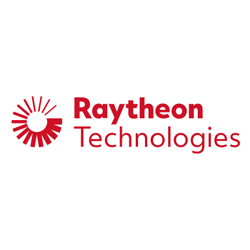What makes a winning Data Story?
- by 7wData

data storytelling is rapidly gaining prominence as a characteristic activity of digital journalism, with significant adoption by small and large media houses. In the past few years, there has been an increased attention on the qualitative aspects of data stories; specifically on how such qualitative factors impact journalism and how data journalism could be improved. At the same time, there is a growing stock of knowledge on exemplars of exceptional and good data storytelling from a journalistic viewpoint. For instance, the Global Editors Network (GEN), through its Data Journalism Award, have been identifying exceptional data journalism practices since 2012.
While a few studies in the past have examined single aspects of data storytelling, such as narratives, visualisation or analysis (Segel and Heer 2010; Lee et al. 2015; Alexander and Vetere 2011, Stikeleather 2013), we believe there is a lack of systematic research around the characteristics of good data stories, as well as the technologies and tools employed in such stories.
A literature review in the Data Journalism domain by Julian Ausserhofer et al. (2016) shows that there are few studies in this area focusing on theory or methodology. We are yet to see a systematic effort to gain better insights into the characterises of good data stories, how such stories are created, and what skills are required in creating such stories.
This paper aims to address this gap in systematic research and practice by studying the winners in the Global Editors Network’s annual Data Journalism Awards, and providing a framework to characterise successful data storytelling. Through analysing the winning stories, this paper provides a systematic insight into the combination of tools and techniques which enable excellence in data journalism.
The framework developed in this paper provides a systematic analysis of the practical aspects of data journalism, studying all data storytelling cases recognised as the outstanding by Global Editors Network (GEN 2016) — in other words the winners of the Data Journalism Award, from 2013 through 2016. Using a multi-case approach (Baxter and Jack 2008), this study uniformly characterises each of the 44 winning cases between 2013 and 2016, and proceeds to determine purpose, genre, representation styles and genres of these stories, and the nature of technologies employed in creating these stories.
The resulting knowledge-base is then analysed using a method called Formal Concept Analysis, to determine the major genres of data storytelling, and further to identify the types and combinatory breakdown of technological tools required to develop the award-winning stories.
Our findings refine the traditional typology of data stories from the journalistic perspective and also recommend technical competencies for the future data journalist and teams working in newsrooms.
There were 44 winning cases between 2013 and 2016, originating from 14 different countries. United States dominates 46% of GEN Data Journalism awardees. There were five cases from United Kingdom, four from France and Argentina and two from Peru. Other countries with at least 1 winning entry includes Switzerland, Spain, Italy, India, Hong Kong, Germany, Denmark, Costa Rica and Canada. North and South America, Europe and Asia are represented in the GEN award map, while the Africa, Australia, Russia are unrepresented. The case of Africa and conflict regions is interesting as these regions are story-rich and in fact some of the settings of the winning data stories are centred on these regions.
The goal of a story could be to inform, to explain, to persuade or to entertain. Many of the winning cases had more than one goal, for instance a story may aim at informing the public and simultaneously persuading or entertaining (Slaney, 2012). Specifically speaking, about 73% of the cases had as part of their goals to “inform” the target audience (e.g.
[Social9_Share class=”s9-widget-wrapper”]
Upcoming Events
Evolving Your Data Architecture for Trustworthy Generative AI
18 April 2024
5 PM CET – 6 PM CET
Read MoreShift Difficult Problems Left with Graph Analysis on Streaming Data
29 April 2024
12 PM ET – 1 PM ET
Read More




